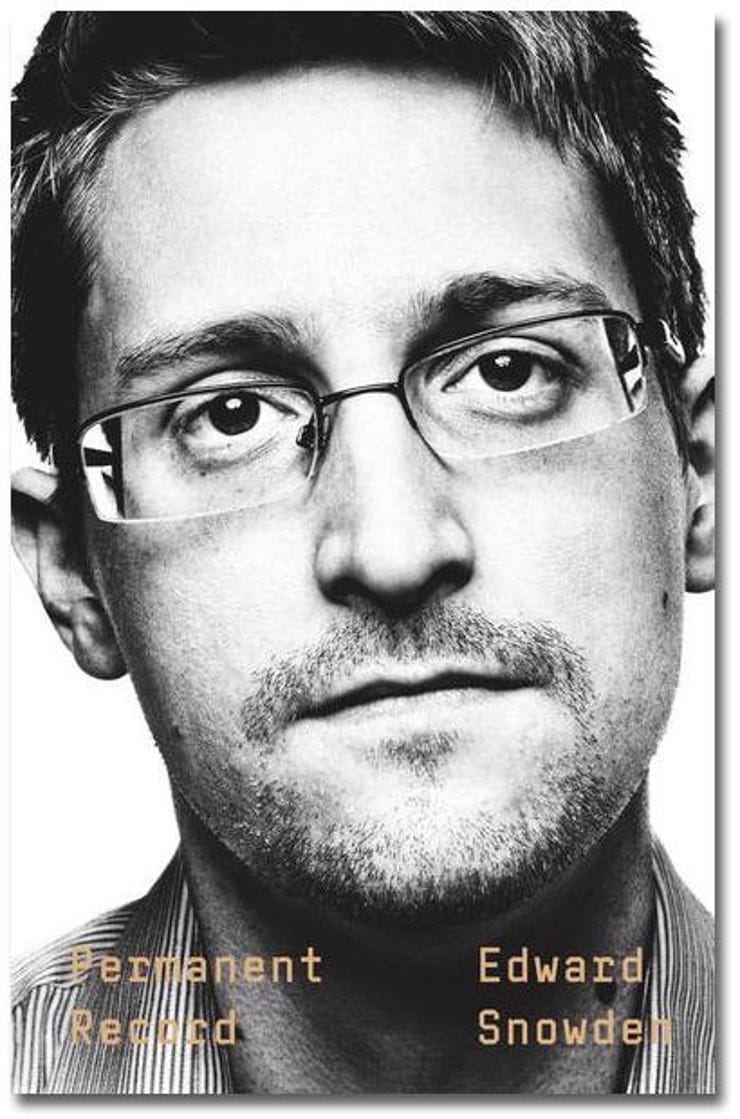Permanent Record, book review: The whistleblower's tale


Permanent Record • By Edward Snowden • Macmillan • 352 pages • ISBN: 978-1529035650 • £20
In 1990, when Simon Davies founded Privacy International, active privacy advocates were likely to find themselves accused of paranoia, even though the Scottish investigative journalist Duncan Campbell kept proving their point with his late 1980s exposés of government surveillance. Davies, who published a memoir of those years a few months ago, nonetheless persisted, through the passage of data protection laws, the proliferation of CCTV cameras across the UK, and the rise of surveillance capitalism.
By 2012, it was possible to think that efforts to improve and reform data protection law would flounder on public apathy and the huge lobbying operation mounted by the big technology companies.
SEE: Sensor'd enterprise: IoT, ML, and big data (ZDNet special report) | Download the report as a PDF (TechRepublic)
And they very well might have, except that one morning in 2013 we all woke up to discover that a hitherto unknown 29-year-old geek, hiding out in a Hong Kong hotel, was exposing secret government surveillance programmes so comprehensive that even the most paranoid privacy advocate would have hesitated to believe their existence. In the immediate aftermath of Edward Snowden's revelations, EU parliamentarians got serious about the General Data Protection Regulation (GDPR), the UK passed the Investigatory Powers Act to legalise the things the intelligence agencies had been doing, and the world's internet experts set about beefing up computer security and deploying encryption.
InPermanent Record, Snowden recounts much of this known history. What makes the book compelling is, first of all, his detailed account of studying and understanding the NSA's systems. Ironically, as a low-level technician he could see everything, while the senior analyst he became could see anything. It's the difference between trees and forest, or between learning what information the agency had and discovering what they could do with it. Snowden, having grown up with computers and the internet, understood -- in a way his lifer NSA colleagues did not -- that the tech administrators had godlike powers over the agency's systems. Snowden also details the security precautions anyone should take when using a computer or the internet while being hunted by a major government. This much I expected.
Personal struggles
But the second compelling element was completely unexpected, and genuinely moving. This concerns Snowden's personal struggles, first with the cognitive dissonance between what he was seeing and the oath he'd taken to protect the US Constitution, which led him to blow the whistle, and second with the anguish of planning his departure from Hawaii, unable to tell either his parents or his girlfriend (now his wife) that he might never see them again.
He compares the experience to planning his own death.
SEE: US sues Edward Snowden over new book
Snowden planned the death, but not the aftermath -- an oversight he lived to regret: country after country refused to grant him asylum; he was forced to hide in the homes of some of Hong Kong's poorest residents; and finally, after the US revoked his passport while he was in flight, he was stuck for 40 days and nights in Moscow airport with the journalist Sarah Harrison, who works with Wikileaks, staying doggedly at his side to bear witness. We know his present situation: eventually, Snowden's inability to persuade any airline to overlook his lack of a valid passport wore Russia down, and he ended up at large in Moscow in what passes for something like safety.
On publication day, the US government filed a civil lawsuit against Snowden aiming to impound his royalties. "The book the government does not want you to read" is a good publicity slogan, as Snowden himself pointed out on Twitter. In fact, the government appears not to be trying to block publication, only to block Snowden from profiting from it. From my reading, I doubt he cares about the money: what drives him is ensuring that his warnings are heard.
RECENT AND RELATED CONTENT
CitizenFour, film review: The Snowden revelations, as they happened
Astro Noise, exhibition review: A film-maker's response to the surveillance state
Five years on, Snowden inspired tech giants to change, even if governments wouldn't
NSA surveillance of foreign nationals surges
US sues Edward Snowden over new book
Read more book reviews
- The Big Nine, book review: Visions of an AI-dominated future
- Tools and Weapons, book review: Tech companies, governments and smart regulation
- The Smart-Enough City, book review: Putting people first
- The Twenty-Six Words that Created the Internet, book review: The biography of a law
- The Science of Breaking Bad, book review: Walter White's chemistry explained